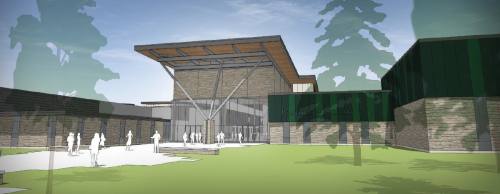 Round Rock ISD’s board of trustees will host workshops on yet-to-be-determined dates to decide how to move forward after voters rejected the district’s $572.09 million bond package May 6.
The district will also seek public input and consider re-evaluating its strategic plan as well as the possibility of another bond election in November or the spring or fall of 2018, RRISD Superintendent Steve Flores said in a May 19 email to the RRISD community.
All three propositions in the May 6 bond package failed. RRISD sought funding for a slew of projects, including a new $150 million high school on Pearson Ranch Road in Austin and $22 million that would go toward the construction of an indoor aquatic center.
Bond opponents criticized the cost of the bond package and district officials’ estimate of how much the bonds would increase annual taxpayer bills.
Flores said during a May 18 board meeting that parents and community members should remain engaged. In the May 19 email, Flores announced the district plans to host public meetings and has launched an online survey regarding future bond planning that will continue until June 10.
On May 18, trustees heard from several bond opponents who asked the board to heed the message from voters who rejected the bonds.
Patrick McGuinness of the Round Rock Parents and Taxpayers Association, which campaigned against the bond package, urged trustees to “take ownership” of the failed election and move district leadership in a new direction for any future bond planning.
While RRISD takes stock of the election’s outcome, Northwest Austin residents who live within Austin ISD’s boundaries could have their own bond package to weigh in November.
AISD has until June to call a bond election for November. It is considering options to fund projects in the district’s updated Facility Master Plan, such as expanding several Northwest Austin schools and building a new elementary school to address overcrowding.
Preliminary AISD bond planning estimated the proposed projects could cost up to $3.9 billion, but an advisory committee hopes to reduce that total to $900 million, according to AISD.
Round Rock ISD’s board of trustees will host workshops on yet-to-be-determined dates to decide how to move forward after voters rejected the district’s $572.09 million bond package May 6.
The district will also seek public input and consider re-evaluating its strategic plan as well as the possibility of another bond election in November or the spring or fall of 2018, RRISD Superintendent Steve Flores said in a May 19 email to the RRISD community.
All three propositions in the May 6 bond package failed. RRISD sought funding for a slew of projects, including a new $150 million high school on Pearson Ranch Road in Austin and $22 million that would go toward the construction of an indoor aquatic center.
Bond opponents criticized the cost of the bond package and district officials’ estimate of how much the bonds would increase annual taxpayer bills.
Flores said during a May 18 board meeting that parents and community members should remain engaged. In the May 19 email, Flores announced the district plans to host public meetings and has launched an online survey regarding future bond planning that will continue until June 10.
On May 18, trustees heard from several bond opponents who asked the board to heed the message from voters who rejected the bonds.
Patrick McGuinness of the Round Rock Parents and Taxpayers Association, which campaigned against the bond package, urged trustees to “take ownership” of the failed election and move district leadership in a new direction for any future bond planning.
While RRISD takes stock of the election’s outcome, Northwest Austin residents who live within Austin ISD’s boundaries could have their own bond package to weigh in November.
AISD has until June to call a bond election for November. It is considering options to fund projects in the district’s updated Facility Master Plan, such as expanding several Northwest Austin schools and building a new elementary school to address overcrowding.
Preliminary AISD bond planning estimated the proposed projects could cost up to $3.9 billion, but an advisory committee hopes to reduce that total to $900 million, according to AISD.
Select your community
Support Us
News
- Austin Metro
-
Houston Metro
- Houston Metro Home
- Bay Area
- Bellaire | Meyerland | West University
- Conroe | Montgomery
- Cy-Fair | Jersey Village
- Cypress
- Heights | River Oaks | Montrose
- Katy | Fulshear
- Lake Houston | Humble | Kingwood
- New Caney | Porter
- Pearland | Friendswood | Manvel
- Spring | Klein
- Sugar Land | Missouri City
- The Woodlands
- Tomball | Magnolia
- Dallas | Fort Worth Metro
- San Antonio Metro




